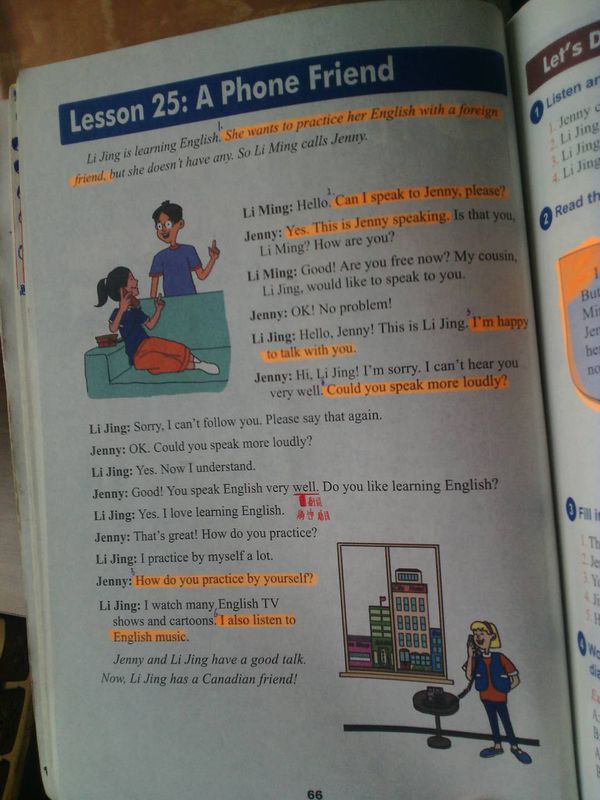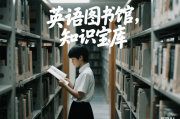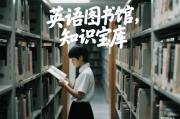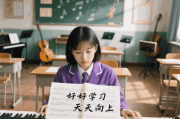
翻译
1.他(听到这话),心里一跳,脸色也变了;Atthishisheartmissedabea;2.三四个筛酒的酒保,都手忙脚乱,搬东搬西;译文A.Buttheseservingmenwe;译文B.Thefourorfivewaiters;3.你不知道,金八这家伙背景复杂,不大讲面子;Don’tyourealizethatthisf;4.他觉得过去的事像个恶梦,英语翻译
1.他(听到这话),心里一跳,脸色也变了。

At this his heart missed a beat and he became pale.
2.三四个筛酒的酒保,都手忙脚乱,搬东搬西。(施耐庵《水浒传》)
译文A. But these serving men were so busy, their hands and feet were all in confusion, and they were moving things hither and thither, east and west. (All men Are Brothers)
译文B. The four or five waiters were busy rushing from one to another serving food and drink. (Outlaws of the Marsh)
3.你不知道,金八这家伙背景复杂,不大讲面子。(曹禺《日出》)
Don’t you realize that this fellow Jin has all kinds of dubious connections and that he’s no great respecter of persons?
4.他觉得过去的事像个恶梦,使他几乎不敢再希望未来。
The past was like a nightmare which made him lose faith in the future.
5.资本有大小,主义是一样。
Though the amount of capital was different, the principle was the same.
6.长将有日思无日,莫到无时盼有时。Waste not, want not?
7.凑成一个整数。Make it up to a round sum.
8.凭心路吃饭。Live by one’s wits.
9.最伟大的牺牲是忍辱,最伟大的忍辱是预备反抗。The acceptance of shame is the greatest sacrifice, and the deepest shame is the prelude to resistance.
我特别喜欢他的那幅《向日葵》,朵朵黄花有如明亮的珍珠,耀人眼目,但孤零零插在花瓶里,配着黄色的背景,给人的是种凄凉的感觉,似乎是盛宴散后,灯烛未灭的那种空荡荡的光景,令人为之心沉。我原是爱看向日葵的,每天清晨看它们缓缓转向阳光,洒着露珠,是那样的楚楚可怜亦复可爱。如今得了这幅画便把它装上镜框,挂在寓所餐室里。向日葵衬在一片明亮亮的黄色阳光里,挂在漆成墨绿色的墙壁上,宛如亭亭伫立在一望无际的原野中,特别怡目,但又显得孤清。英语翻译
I like his painting Sunflowers in particular, for the many yellow flowers in it are glittering like pearls, but with the blossoms held lonesome in a vase against a yellow background, it manifestes a dreary scene. It is as vacant as a finished banquet and only the candles are left glimmering, making us upset. I love the sunflower and enjoy watching it turn its face towards the morning sun, dripping with dew drops, so delicate and charming. Now, I have framed this painting and hung it on the wall of the dining room in my flat. Hung on the dark green-painted wall, the sunflowers are as if standing in an endless field bathed in bright sunshine, looking exceptionally pleasant to the eye but giving a sense of loneliness as well.
我对于海,就好像着了魔似的一天比一天迷恋起来,我爱它,甚至一天也不能离开它。有时清早起来便奔向海滨,迎接血红的太阳由海边升起;有时特地在阳光将要落山的时候,去领略海滩的黄昏滋味。我更爱看矗立在海中央的灯塔,我佩服那守灯塔的人,他每天机械地守住自己的岗位,给予往来的航行者一种光明的指示;假若没有他,这海面将被黑暗所包围,来往的船只,随时都有触着暗礁的危险。 I’ve become more and more crazy about the sea. I never let a day pass without seeing it with my own eyes. Sometimes as soon as I get up, I’ll hasten to the seashore to greet the
blood-red sun rising from the distant edge of the sea. Sometimes, I’ll go to the beach at sunset for the special purpose of enjoying the twilight scene. I’m even more fascinated by the lighthouse standing in the middle of the sea. My hat off to the lighthouse keeper for drudging at the tedious task of providing ships with a flashing light lest they should run up on rocks in the dark sea!
Yu Player Safety in Numbers
Whenever King Xuan of Qi had musicians play the yu, a wind instrument with reed, he would like to have three hundred of them play together. Knowing this, a student from Nanguo applied for a job. The king happily accepted him and paid him the same salary as that of the others.
After the death of King Xuan, King Min became the ruler of the Qi. He liked to have the musicians play individually. The student from Nanguo fled.
I never enter the National Library without being overwhelmed by a sense of “inferiority”. The large number of books that should have been read, I infact haven’t touched at all — and that number keeps growing. By contrast, the several hundred books that I do manage to read per year are only too insignificant to mention. If it were not for the variety of newspaper and magazines I browsed through every day, I wouldn’t be sure whether I can keep up with the times.
…
Attitude determines whether there is way out. Everybody knows what it means to “vanquish the old to reach out for the new” — if you want to scale new heights, you must first attach your old self! The earlier and harder you do so, the better. After all, receiving vicious blows from oneself is more endurable than being cudgeled by other people or by
the ruthless reality of life.
闲话幽默
幽默是人类生命的冬青树,它好像化学反应中的酸碱中和,常可以化干戈为玉帛,使剑拨弩张的双方相视一笑,握手言和。以盛产笑话为名的山西万荣县,两个人在争吵:“你为什么不讲理?”“我本来就没理,和你讲什么理?”一场“战争”被笑声制止了。德国诗人歌德在公园里散步,与一位批评家在一条仅能让一人通过的小路上相遇。批评家说:“我从来不给蠢货让路。”歌德笑着推到路边:“我恰恰相反。”幽默之后,在笑声中有理的一方消气了,没理的一方道了歉而又不伤自尊。显然,这比无理强辩和直接认错效果要好得多。笑声中,歌德将“蠢货”的头衔还给了批评家,批评家无言以对,只好笑纳。歌德不仅达到了反击的目的,而且显示了自己的智慧,留下了千年佳话。英语翻译

Humor serves as a breath of fresh air in our lives, and it is like a chemical reaction neutralizing all types of acidic feelings. It can even turn hostility into friendship. In China’s Wanrong County, Shanxi Province, a place widely famous for its humorous stories, two men were once quarreling. One said, “Why are you so unreasonable?” The other man replied, “If I am so unreasonable, why are you trying to reason with me.” Thus, a “war of words” was prevented with a bit of laughter.
In other instances, the German poet Goethe was walking int the park when he encountered a critic. The man said, “I never give way to idiots.” Chuckling, Goethe stepped aside and said, “I do.” Humor, in such cases, allows the offended to be molified, while the offender recognizes his error and still maintains face. This obviously produces far better results than unreasonable arguments or direct apologies. With laughter, Goethe indirectly called his critic an idiot, and the critic had no choices but accept.Goethe not only was successful in reversing the criticism, but he also expressed his wit and left behind a wonderful story for future generations.
朝花夕拾
顾名思义,这是一朵再放的花朵。它曾经绽放在大中学生的教材里,摇曳在中文老师的讲义上,灿烂在无数学子的诵读中。春光似水,10年过去,也许5年或15年,甚而至于更多一些年头,昔日少年已是今天的白领阶层,抑或社会各个阶层各种角色的扮演者,对于曾经在课堂上读过的文章,至今余香在口,每能忆起,那同学少年,那花样季节,那响彻幽雅校园的琅琅之声,无一不令人心醉。于是有一天,我们这一套书的编者便作如是想,假使将那10年前读过的名篇重编一书,新加评注,让旧的读者以新的心境再读一遍,连同已逝的韶华一并温习,不亦乐乎?
Cherished Dawn Blossoms
A Retrospective of Chinese Leterature
The title of this bilingual collection, Cherished Dawn Blossoms, reminds one of a bouquet
of reopened blossoms. These blossoms of Chinese literature were once in full bloom in much-read books, in teachers’ curricular and on the lips of students. Time flows like water in a river. Ten or more years hence, those students would have grown up, but whatever positions they might hold in society today they will never forget those beautiful pieces of prose, poetry and stories in their old school books. The sound of the classroom recital of those masterpieces still echoes in their ears, making them nostalgic for those school days. One day, an idea suddenly hit us, the editors of this series—wouldn't it be wonderful to pick up those cherished blossoms and arrange them into bouquets for our readers who would probably look at them again from a new perspective, a mature aesthetic judgement?
——“Forword” to Cherished Dawn Blossom
我曾对住在森林公园的一对夫妻羡慕不已,因为公园里有大片的杉树,竹林,有幽静的林间小道,有鸟语和花香。然而,当这对夫妇知道有人羡慕他们的住所时,却神情诧异。他们认为这儿没有多少值得观光和留恋的景致,远不如城市丰富有趣。
当时,我的感觉是,熟悉的地方没有风景。这对夫妇对这儿太熟悉了,花草树木,清风明月,在他们漫长的日子里,已不再有风景的含义,而是成为习以为常的东西。
I used to envy a married couple who lived in a forest park, where groves of firtrees and bamboos flourished, with quiet and secluded cobble stone paths meandering through the woods, birds chirping beautifully and flowers permeating fragrance. Yet when they realized that they had unwittingly become an object of admiration owing to the unique location of their house, they were truly perplexed. In their eyes, there was little in the forest which deserved to be seen or made such a fuss about when compared with the the fun and abundant life a metropolis can provide!
That experience told me that when one becomes too familiar with something, he stops enjoying it. The couple had long been used to everything within their sight——the trees and the flowers, breezes and the moon——thus those were no longer regarded as natual wonders but simply a constituent part of their unvarying life.
年过五十的老先生,大概读过韩愈的《师说》。这篇文章里有几句话值得今天当老师和学生的想一想。例如他说: “孔子曰:三人行,则必有我师。是故弟子不必不如师,师不必贤于弟子。闻道有先后,术业有专攻。如是而已。”
一定样样贤于弟子,从他学的人也不一定不如他,人们不必因此而大惊小怪。本来,只要是一个人闻道在先,不管他是什么人,都可以拜他为师。要学习的是知识,用不着问他“生乎我前”或“生乎吾后”;也用不着要求老师精通百般武艺,只要他有一门是比自己好的,就应该认他为师,向他学习。这是讲给求学的人听的。但也可以反过来讲给“传道授业解惑”的老师们听。
参考译文
Han Yu wrote this essay to defend himself against the attack of his time on his having accepted some desciples. In his opinion, having some disciples was not something to be surprised at because,, as a teacher, he was not necessarily better than his disciples in every way, nor his disciples always inferior to him. As a matter of fact, one who has learned the truth earlier than you, no matter who he is, should be acknoledged as a teacher. You need not ask whether he was born before or after you because what matters is the knowledge that he can impart to you. Nor should you presume him to be omniscient. So long as he excels you in one respect, you should learn from him and call him a teacher.
得病以前,我受父母宠爱,在家中横行霸道,一旦隔离,拘禁在花园山坡上一幢小房子里,我顿感被打入了冷宫,十分郁郁不得志起来。一个春天的傍晚,园中百花怒放,父母在园中设宴,一时宾客云集,笑语四溢。我在山坡的小屋里,悄悄掀起窗帘,窥见园中大千世界,一片繁华,自己的哥姐,堂表弟兄,也穿插其间,个个喜气洋洋。一霎间,一阵被人摈弃,为世所遗的悲愤兜上心头,禁不住痛哭起来。 Before I fell ill, I was the pampered child of my parents and I could always have my way at home. Once isolated and confined to a small house on the garden hill, however, I suddenly felt ignored and became deeply depressed. One spring evening, with all sorts of flowers in full blossom, my parents were holding a dinner party in the garden filled with guests and echoed with laughter. I lifted the curtain of my small room secretly and caught a glimpse of the colorful and bustling garden world. There, I saw my brothers, sisters and cousins were all having a ball. Suddenly, I was overwhelmed by a surge of indignation and grief over being abandoned, and I couldn’t help crying bitterly.
中华民族自古以来从不把人看作高于一切,在哲学文艺方面的表现都反映出人在自然界中与万物占着一个比例较为恰当的地位,而非绝对统治万物的主宰。因此我们的苦闷,基本上比西方人为少为小;因为苦闷的强弱原是随欲望与野心的大小而转移的。农业社会的人比工业社会的人享受差得多;因此欲望也小得多。况中国古代素来以不滞于物,不为物役为最主要的人生哲学。并非我们没有守财奴,但比起莫利哀Moliere与巴尔扎克Balzac笔下的守财奴与野心家来,就小巫见大巫了。中国民族多数是性情中正和平、淡泊、朴实、比西方人容易满足。英语翻译
标签: #七年级下册英语书翻译








